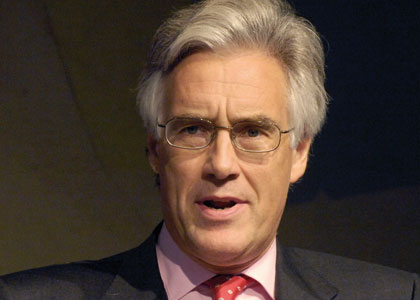Printing Money

Adair Turner is a British Lord as well as a businessman and academic. He is, according to Wikipedia, a member of the UK’s Financial Policy Committee, a chairman of the now abolished Financial Services Authority, a former chairman of the UK Pensions Commission and a member of the Committee on Climate Change.
Recently, this celebrated Baron Turner of Ecchinswell issued a paper that he delivered to the 16th Jacques Polak Annual Research Conference, hosted by the IMF in Washington on November 5-6, 2015.
Turner’s article is heavy reading but it is summarised and commented on more simply, by John Cassidy of The New Yorker under the title, ‘Printing Money’.
As most of us know, the term ‘printing money’ is a misnomer. Apart from a small percentage of notes and coin, today all money is processed via electronic transfers from the Central Banks to the private banks who in turn credit their respective account holders. Money today is, essentially, just numbers in a computer moved around in millions of transactions every day.
Turner’s article is essentially about Overt Monetary Financing (OMF) which is the creation of debt free money to fund government deficits.
At present most Western fiat currency issuing governments finance deficits by issuing interest bearing bonds to the private bond market.
Such a process is a hangover from the fixed exchange rate mechanism of the gold standard era.
OMF, as described by economist Bill Mitchell “brings together the central bank and the treasury functions of government into a coherent framework whereby the central bank merely credits private bank accounts on behalf of the government to indicate the spending initiatives implemented by the Treasury.”
Modern Monetary Theorists (MMT) support OMF. It is money creation without debt.
The difficulty supporters of MMT have faced in the neo-classical world is that whenever we attempt to explain it, the words, ‘printing money’, ‘Weimar republic’, ‘Zimbabwe’ and more recently, ‘Greece’ are thrust in our faces as if to suggest that such a proposal would send us bankrupt, that hyperinflation or at least some kind of inflation would destroy our economy.
The reality is that none of these outcomes would result with OMF. Inflation occurs when excessive spending outstrips the ability to supply. However where a nation has underutilised resources, i.e. unemployment, and OMF draws on those resources to increase supply and meet that demand, inflation will not happen.
In reality, it is the pathway to full employment which brings about an increase in the tax base, a debt free fiscal position, as well as growth and higher living standards.
There are those that argue that continued growth based on the exploitation of finite resources is unsustainable and they are right. However, people are our most important resource and within us we have one resource that is not finite: the mind.
Ground-breaking discoveries in technology and social cohesion continue to reduce our dependence on natural resources. They will continue to do so as our minds continue to search for better ways to do things. And money, a product of the mind, which has evolved over time to be what it is today, is now another of our most powerful resources.
It is as infinite a resource as is organisation, initiative and discipline. But money has, almost from its inception, been corrupted by individuals and governments to service greed.
Money needs to be restructured to serve its most wholesome purpose: equality. Modern Monetary Theory seeks out that wholesomeness, that equality.
As a direct consequence of the corruption of money as a resource, evidenced by the GFC, we now have the gurus of macroeconomics throwing their hands in the air, bereft of ideas on how to restore economic growth. Little wonder they are now slowly but surely turning their heads towards the simple principle of Overt Monetary Finance.
Turner writes, “My proposals will horrify many economists and policymakers, and in particular central bankers. Printing money to finance public deficits is a taboo policy. It has indeed almost the status of a mortal sin.”
While Cassidy writes, “Given the problems of debt overhang and slow growth, and the high toll that an extended period of economic stagnation could take on Western democracies, we face a choice of dangers. We could revert to the standard model, hoping that another round of debt issuance in the public and private sectors will juice the economy. Or we could resort to something different and radical: the electronic printing press.”
Bill Mitchell’s blog on the subject of Adair’s article and Cassidy’s response to it, reflects his own take on the changing attitudes to the way economies are managed.
He writes, “It is interesting that more people are now talking about things that the MMT crowd have been writing and thinking about for a fair while now.
It is clear that ideas that were considered ‘crazy’ some years ago and now being entertained as being plausible by the mainstream media.
Given the vilification that our small group endured when we set out on this MMT journey, I find all of this rather amusing. Apparently it takes a British lord to give an idea credibility. So be it.
It is better that these ideas penetrate the mainstream debate through which ever means than be sequestered by the mainstream media and wheeled out as a way of humiliating commentators who dare to challenge the mainstream paradigm.”
Let us hope that as the world continues to struggle with flat demand and little improvement in employment, some national leaders with a sense of vision and a passion for equality, will catch on to the idea and implement a strategy to mobilise our underutilised resources. Such a vision would go a long way toward that mythical image John Lennon created when he penned, ‘Imagine’.
Like what we do at The AIMN?
You’ll like it even more knowing that your donation will help us to keep up the good fight.
Chuck in a few bucks and see just how far it goes!
Your contribution to help with the running costs of this site will be gratefully accepted.
You can donate through PayPal or credit card via the button below, or donate via bank transfer: BSB: 062500; A/c no: 10495969










